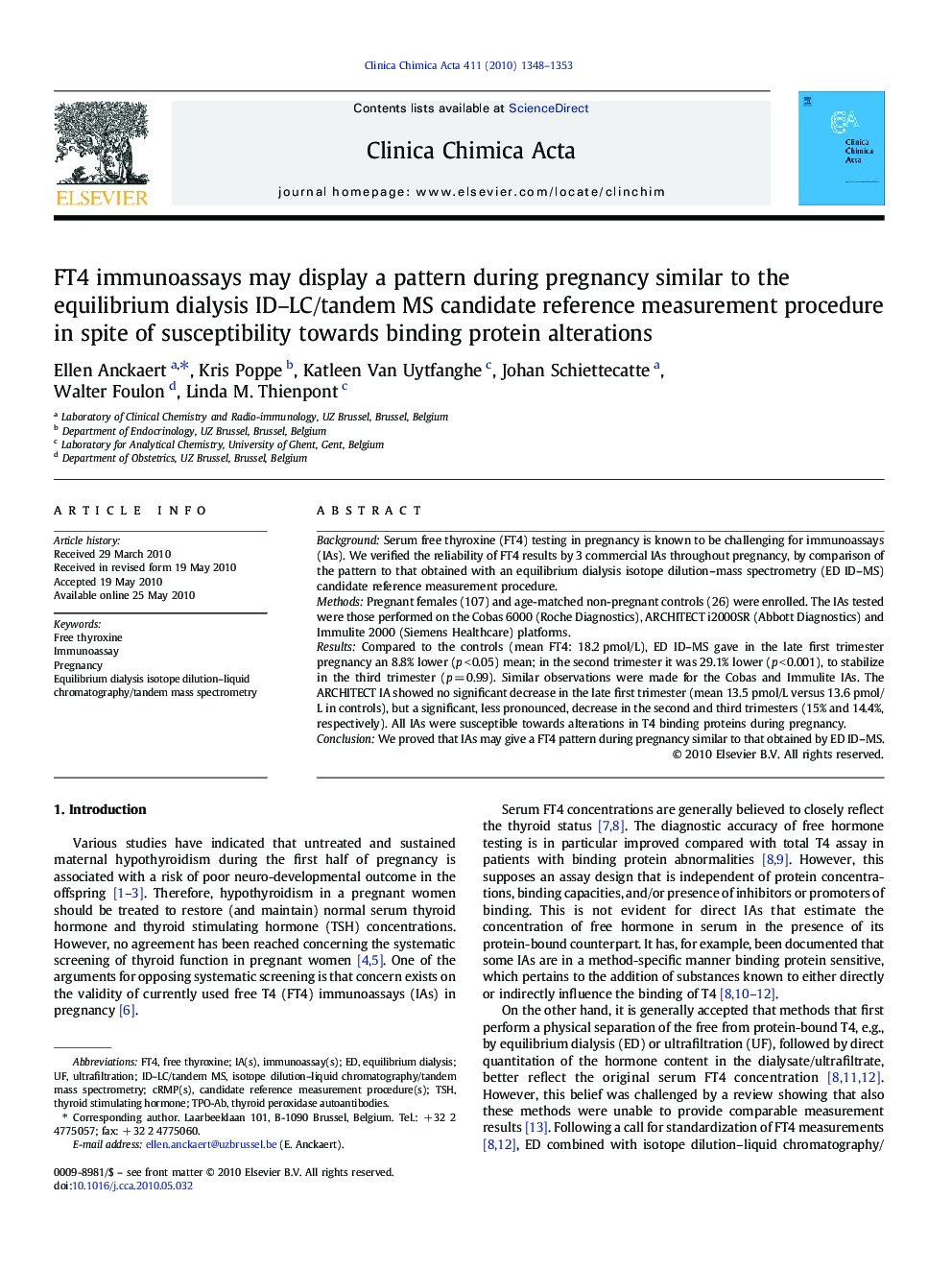| Article ID | Journal | Published Year | Pages | File Type |
|---|---|---|---|---|
| 1965746 | Clinica Chimica Acta | 2010 | 6 Pages |
BackgroundSerum free thyroxine (FT4) testing in pregnancy is known to be challenging for immunoassays (IAs). We verified the reliability of FT4 results by 3 commercial IAs throughout pregnancy, by comparison of the pattern to that obtained with an equilibrium dialysis isotope dilution–mass spectrometry (ED ID–MS) candidate reference measurement procedure.MethodsPregnant females (107) and age-matched non-pregnant controls (26) were enrolled. The IAs tested were those performed on the Cobas 6000 (Roche Diagnostics), ARCHITECT i2000SR (Abbott Diagnostics) and Immulite 2000 (Siemens Healthcare) platforms.ResultsCompared to the controls (mean FT4: 18.2 pmol/L), ED ID–MS gave in the late first trimester pregnancy an 8.8% lower (p < 0.05) mean; in the second trimester it was 29.1% lower (p < 0.001), to stabilize in the third trimester (p = 0.99). Similar observations were made for the Cobas and Immulite IAs. The ARCHITECT IA showed no significant decrease in the late first trimester (mean 13.5 pmol/L versus 13.6 pmol/L in controls), but a significant, less pronounced, decrease in the second and third trimesters (15% and 14.4%, respectively). All IAs were susceptible towards alterations in T4 binding proteins during pregnancy.ConclusionWe proved that IAs may give a FT4 pattern during pregnancy similar to that obtained by ED ID–MS.
